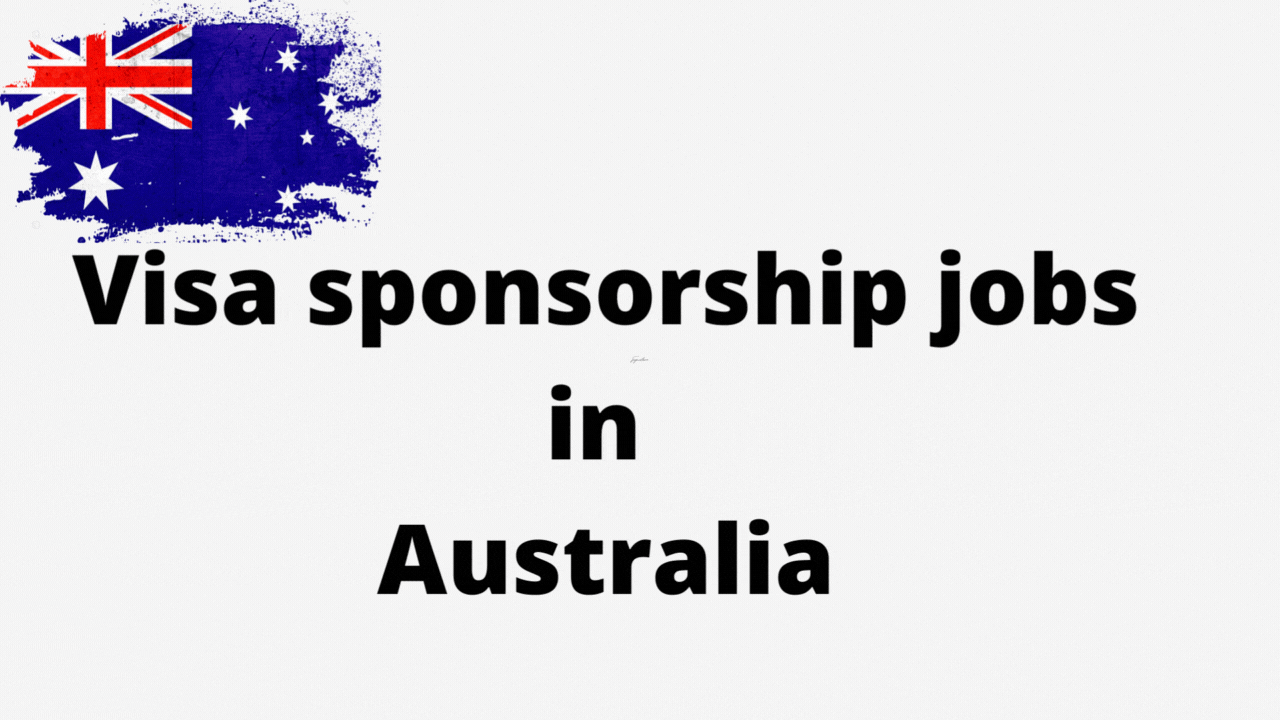The United Kingdom’s healthcare system, anchored by the National Health Service (NHS) and bolstered by private providers, is a global hub for medical professionals. Yet, for foreign healthcare workers—nurses from Nigeria, doctors from India, carers from the Philippines, or allied health professionals (AHPs) from elsewhere—entering this vibrant sector can feel like navigating a complex maze. Visa requirements, professional registrations, language tests, and cultural adjustments create significant hurdles. This is where healthcare recruitment agencies for foreigners in the UK shine, acting as expert navigators to streamline the journey, ensure ethical practices, and unlock life-changing career opportunities.
In this detailed guide, I’ll explore what these agencies do, how they support international healthcare professionals, and why they’re essential in 2025. This article aims to empower you with actionable knowledge. Whether you’re a nurse dreaming of the NHS or a doctor eyeing a private clinic, this guide will inspire confidence and guide you toward a rewarding UK career.
The Vital Role of Healthcare Recruitment Agencies
Imagine you’re a skilled nurse in Kenya, longing to work in a bustling NHS hospital. The opportunity exists, but the path—visa applications, English proficiency tests, and job interviews—feels overwhelming. A healthcare recruitment agency steps in as your ally, simplifying the process while ensuring you meet UK standards.
What Do These Agencies Do?
Healthcare recruitment agencies specialize in connecting international healthcare professionals with UK employers, including NHS Trusts, private hospitals, care homes, and clinics. Their services include:
-
Job Matching: Assessing your qualifications, experience, and goals to find roles like registered nurse, GP, or senior care assistant.
-
Visa Support: Guiding you through the UK’s points-based immigration system, often helping employers secure Certificates of Sponsorship (CoS) for Health and Care Worker visas.
-
Professional Registration: Assisting with registration processes for bodies like the Nursing and Midwifery Council (NMC), General Medical Council (GMC), or Health and Care Professions Council (HCPC), including exam preparation (e.g., OSCE for nurses).
-
Relocation Assistance: Providing airport pickups, accommodation, and cultural orientation to ease your transition.
-
Ethical Recruitment: Adhering to the UK’s Code of Practice for International Recruitment, ensuring fair treatment and compliance with global standards.
Why Are They Essential for Foreigners?
The UK healthcare sector faces persistent staffing shortages. In 2024, the NHS reported 110,000 vacancies, with nurses and doctors in high demand. International workers are critical—over 16.5% of NHS staff (200,000+) are non-UK nationals. However, the process is complex:
-
Regulatory Hurdles: Foreign professionals must meet stringent standards, like IELTS (band 7) or OET (grade B) for English proficiency.
-
Cultural Barriers: Adapting to UK workplace norms and patient expectations requires guidance.
-
Ethical Concerns: Recruitment from WHO red list countries (e.g., Nigeria, Pakistan) must follow strict guidelines to avoid depleting local workforces.
Agencies bridge these gaps, offering expertise that saves time and reduces stress. Having explored this space and spoken with professionals, I’ve seen how agencies transform dreams into reality—provided you choose a reputable one.
Table 1: The Recruitment Agency Process for Foreigners
|
Step |
Description |
Key Details |
|---|---|---|
|
1. Candidate Assessment |
Evaluate qualifications, experience, and language skills. |
Requires degree/diploma, 12–24 months experience, IELTS (7) or OET (B). |
|
2. Job Matching |
Connect candidates with suitable UK employers. |
Matches roles like nurse, doctor, or carer via agency networks. |
|
3. Interview Support |
Prepare for virtual or in-person interviews. |
Agencies like Skycare offer coaching and materials. |
|
4. Visa & CoS Assistance |
Help employers secure Certificate of Sponsorship and guide visa process. |
Takes 4–8 weeks; includes IHS (£1,035/year). |
|
5. Exam Preparation |
Support for exams like OSCE (nurses) or PLAB (doctors). |
Provides study materials, mock exams, or training programs. |
|
6. Relocation Support |
Arrange airport pickup, accommodation, and cultural integration. |
Includes pastoral care for settling in. |
Note: Process takes 4–6 months. Candidate costs: £0 (employer-funded).
Partner with an agency to simplify your UK healthcare journey!
International Nurse in NHS Ward

Nurses like Priya from India thrive in the NHS with agency support.
How Healthcare Recruitment Agencies Operate
Let’s dive into the step-by-step process, so you know what to expect when partnering with an agency.
Step 1: Candidate Assessment
Agencies start by reviewing your qualifications, experience, and language proficiency. For example, a nurse typically needs:
-
A nursing degree or diploma.
-
IELTS (band 7) or OET (grade B).
-
12–24 months of clinical experience.
They’ll also discuss your preferences—urban hospital or rural care home?
Step 2: Job Matching and Interviews
Using their employer networks, agencies match you with suitable roles. Many arrange virtual interviews for convenience. Skycare Recruitment, for instance, holds weekly online interviews and provides preparation resources to help you excel.
Step 3: Visa and Compliance
After securing a job offer, the agency assists your employer in obtaining a CoS for the Health and Care Worker visa. They ensure compliance with the UK’s Code of Practice, avoiding active recruitment from red list countries unless candidates apply directly.
Step 4: Pre-Departure Support
Agencies prepare you for exams like the OSCE (nurses) or PLAB (doctors). They may offer study guides, mock exams, or connect you with training programs. Medacs Healthcare provides “VIP-standard” support, including exam and visa guidance.
Step 5: Relocation and Settling In
Upon arrival, agencies often arrange airport pickups, temporary accommodation, and even bank account setup. Sanctuary Personnel’s pastoral services include community-building events to help you feel at home.
Step 6: Ongoing Support
Top agencies stay engaged, checking in to address workplace challenges or homesickness, ensuring long-term success.
Table 2: Top Roles Supported by Recruitment Agencies
|
Role |
Demand (% of Agency Placements) |
Salary Range |
Key Agency Support |
|---|---|---|---|
|
Nurses |
40% | £30,000–£40,000 |
OSCE prep, NMC registration, visa support. |
|
Doctors |
25% | £40,000–£90,000 |
PLAB prep, GMC registration, ethical compliance. |
|
AHPs (e.g., physiotherapists) |
20% | £28,000–£45,000 |
HCPC registration, job matching. |
|
Carers |
15% | £22,000–£28,000 |
Visa assistance, cultural integration. |
Note: Nurses lead due to high NHS demand. Carer roles are accessible entry points.
Find your ideal role with agency expertise!
Doctor in UK Clinic

Dr. Ade from Nigeria builds his career with agency guidance.
Choosing the Right Agency: What to Look For
Not all agencies are equal. To ensure you partner with a reputable one, consider these factors:
1. Adherence to the Code of Practice
The UK’s Code of Practice for International Recruitment, updated in March 2025, sets ethical standards. Agencies must:
-
Avoid active recruitment from red list countries (e.g., Nigeria, Pakistan) unless through government agreements.
-
Charge no fees to candidates—employers cover costs.
-
Provide transparent contracts, free of exploitative clauses like repayment fees.
Verify the agency is on the NHS Employers’ ethical recruiters list. Medacs Healthcare and Skycare Recruitment are compliant examples.
2. Proven Track Record
Seek agencies with positive candidate and employer reviews. Sanctuary Personnel is praised for its quick responses and high-quality placements.
3. Comprehensive Support
Choose agencies offering end-to-end services, from job matching to relocation. Pearls International excels with tailored visa and cultural support.
4. Transparency
Reputable agencies are clear about costs, timelines, and expectations. Avoid those promising “guaranteed jobs” or demanding upfront fees—these are red flags.
5. Specialization
Some agencies focus on specific roles. Zenopa targets pharmaceutical roles, while The Flame Lily specializes in nursing and care.
Pro Tip: Contact multiple agencies to compare services. Request case studies or testimonials, and connect with former candidates if possible.
Success Stories from Foreign Healthcare Professionals
Let’s explore three stories of professionals who succeeded with agency support, bringing the process to life.
Case Study 1: A Nurse from India
Name: Priya, 28, Registered Nurse
Agency: Medacs Healthcare
Journey: Priya struggled with the OSCE exam but found success with Medacs’ study materials and training program. They matched her with an NHS Trust in Manchester, handled her visa, and arranged flights and accommodation. Now a Band 5 nurse earning £30,000, Priya mentors other internationals.
Insight: Agencies with robust exam support are game-changers.
Case Study 2: A Doctor from Nigeria
Name: Dr. Ade, 35, General Practitioner
Agency: IMS Recruitment
Journey: From a red list country, Ade applied directly via NHS Jobs, but IMS facilitated his relocation after an offer. They guided him through GMC registration and PLAB exams, ensuring ethical compliance. Ade now works in a rural Welsh GP practice.
Insight: Agencies support direct applicants from red list countries ethically.
Case Study 3: A Carer from the Philippines
Name: Maria, 24, Senior Care Assistant
Agency: Skycare Recruitment
Journey: Referred by a friend, Maria joined Skycare’s program, securing a Devon care home role. Skycare covered her visa costs, provided airport pickup, and offered cultural tips from their international staff. Maria now feels at home in her “second family.”
Insight: Agencies with diverse teams add a personal touch to relocation.
These stories highlight how agencies turn aspirations into reality when they prioritize candidate welfare.

Maria from the Philippines thrives as a carer with Skycare’s support.
Challenges and How Agencies Address Them
The journey isn’t without obstacles. Here’s how top agencies tackle common challenges:
Challenge 1: Visa Delays
Visa processing can take 4–6 months. Solution: Agencies like Workforce ensure accurate CoS applications, reducing delays.
Challenge 2: Exam Failures
OSCE or PLAB exams are tough. Solution: Medacs provides tailored training, mock exams, and mentorship to improve pass rates.
Challenge 3: Cultural Adjustment
Relocating can be isolating. Solution: Sanctuary Personnel’s pastoral services include community events to foster belonging.
Challenge 4: Exploitation Risks
Unethical agencies may charge fees or impose unfair contracts. Solution: The Code of Practice bans this, and agencies like Reed ensure transparency with no candidate fees.
Challenge 5: Red List Restrictions
Agencies can’t actively recruit from red list countries. Solution: IMS Recruitment supports direct applicants like Dr. Ade through compliant pathways.
Table 3: Key Stats on Healthcare Recruitment Agencies
|
Metric |
Details |
Source/Projection |
|---|---|---|
|
NHS Vacancies |
110,000 (2024) |
NHS Digital, 2024 |
|
Non-UK NHS Staff |
16.5% (200,000+) |
NHS Workforce Stats, 2024 |
|
Health & Care Worker Visas |
2022: 39,000; 2025: 45,000+ (projected) |
Home Office, 2022; 2025 estimate |
|
Top Source Countries |
India (25%), Philippines (20%), Nigeria (15%) |
NHS Recruitment Data, 2024 |
|
Agency Costs |
£6,000–£12,000 per hire (employer-paid) |
Industry Estimates, 2025 |
Note: Agencies are critical to filling NHS vacancies ethically.
Join the global talent shaping UK healthcare with agency support!
Expert Advice: Maximizing Your Agency Experience
Based on my research and discussions with professionals, here are top tips for working with a healthcare recruitment agency:
-
Research Thoroughly: Use the NHS Employers’ ethical recruiters list and read reviews on LinkedIn or Glassdoor.
-
Be Proactive: Prepare your CV, language test results, and references early to expedite the process.
-
Ask Questions: Clarify costs, timelines, and support services. Reputable agencies welcome transparency.
-
Avoid Scams: Never pay upfront fees. Report suspicious agencies to NHS Employers or the Employment Agency Standards (EAS).
-
Build Relationships: Communicate regularly with your agency contact to prioritize your application.
-
Network: Join forums like Filipino Nurses UK or LinkedIn groups to find trusted agencies via peer recommendations.
-
Plan Long-Term: Discuss career progression with your agency—some, like Zenopa, offer ongoing career advice.
2025 Data: The State of International Healthcare Recruitment
Let’s ground this in numbers:
-
NHS Vacancies: 110,000 in 2024, with 40% in nursing and 15% in medical roles. International hires filled 25% of vacancies.
-
Foreign Workforce: 16.5% of NHS staff (200,000+) are non-UK nationals, with India, the Philippines, and Nigeria as top sources.
-
Agency Costs: Employers pay £6,000–£12,000 per hire, covering visas, flights, and agency fees. Candidates pay nothing.
-
Visa Trends: 39,000 Health and Care Worker visas issued in 2022, with a projected rise in 2025.
-
Ethical Compliance: Over 100 agencies are on the NHS Employers’ ethical recruiters list, ensuring Code of Practice adherence.
These figures underscore the pivotal role agencies play in sustaining UK healthcare.
Agencies as Cultural Bridges
Beyond logistics, healthcare recruitment agencies act as cultural bridges, helping foreigners integrate into the UK’s diverse society. This human-centered role is often overlooked. Agencies like Skycare, staffed by internationals, understand the emotional challenges of relocation—homesickness, new norms, and leaving family. By offering pastoral care, cultural workshops, and community connections, they ensure candidates thrive, not just survive.
Maria’s Devon care home became her “second family” thanks to Skycare’s support, showing how agencies foster belonging. This perspective highlights their role as more than job brokers—they’re builders of new lives.
Pitfalls to Avoid
Avoid these common mistakes when working with agencies:
-
Choosing Unregulated Agencies: Stick to the NHS Employers’ ethical recruiters list to avoid scams.
-
Ignoring Red List Rules: If from a red list country, apply directly via NHS Jobs, not agencies, to comply with ethics.
-
Signing Unclear Contracts: Review terms, especially repayment clauses, and query anything vague.
-
Neglecting Language Prep: Failing IELTS/OET delays progress. Invest in prep courses early.
-
Over-Reliance on Agencies: Supplement with direct applications and networking for broader opportunities.
The Future of Healthcare Recruitment Agencies in 2025
Looking ahead, agencies will remain central to international recruitment. Emerging trends include:
-
Digital Recruitment: Virtual interviews and AI-driven job matching will streamline processes.
-
Government Partnerships: Programs like the Thai-UK medical training partnership will expand ethical recruitment.
-
Retention Focus: Agencies will prioritize candidate well-being to reduce turnover, as seen in Workforce’s retention model.
-
Diverse Roles: Demand will grow for AHPs, pharmacists, and mental health professionals.
As the UK faces an aging population and post-Brexit shortages, agencies will shape a global healthcare workforce.
Ready to start your UK healthcare career? Take these steps today:
-
Research Agencies: Visit the NHS Employers’ ethical recruiters list and shortlist agencies like Medacs, Skycare, or Sanctuary Personnel.
-
Prepare Documents: Update your CV, complete language tests, and gather references.
-
Reach Out: Contact agencies to explore opportunities and launch your journey.
Your dream UK job is achievable. With the right agency, you can contribute to a world-class healthcare system. Start now!
Frequently Asked Questions
-
What are healthcare recruitment agencies for foreigners in the UK?
They connect international healthcare professionals with UK employers, assisting with jobs, visas, and relocation ethically. -
Do I pay to use a recruitment agency?
No, reputable agencies are employer-funded. Charging candidates is illegal under UK law. -
Can I use an agency if I’m from a red list country?
Yes, but only for direct applications (e.g., via NHS Jobs), as agencies can’t actively recruit from red list countries. -
How long does the agency process take?
Typically 4–6 months, including job matching, visa processing, and relocation. -
What qualifications do I need?
A relevant degree/diploma, 12–24 months experience, and English proficiency (IELTS 7 or OET B). -
What is the Code of Practice for International Recruitment?
A UK guideline ensuring ethical recruitment, banning red list recruitment and candidate fees. -
How do agencies help with exams?
They provide study materials, mock exams, and training for exams like OSCE or PLAB. -
Do agencies assist with settling in?
Yes, top agencies offer airport pickups, accommodation, and cultural support. -
What are the risks of unethical agencies?
Hidden fees, unfair contracts, or non-compliance with red list rules can jeopardize your job or visa. -
How do I find a reputable agency?
Check the NHS Employers’ ethical recruiters list, read reviews, and seek testimonials.
Healthcare recruitment agencies are your bridge to a rewarding UK career. Take the first step today!
Ready to move forward? See our latest UK job listings here and start your application today!










